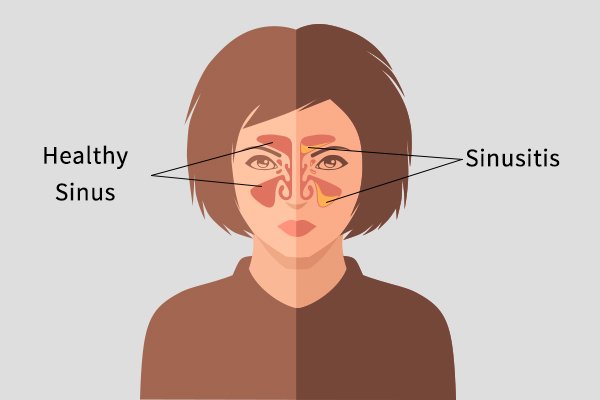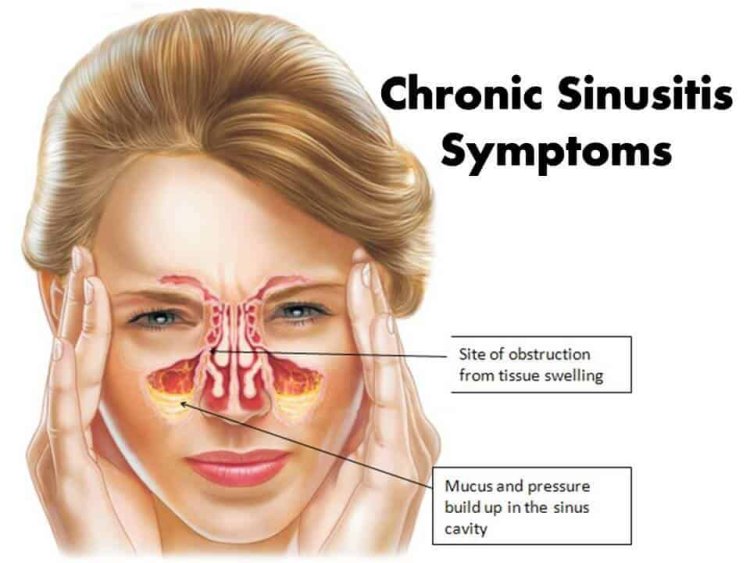Understanding and Handling Sinus Problems: The Relationship Between Sinusitis and ENT Health

An often occurring disorder marked by sinus inflammation, sinusitis, can have a big negative effect on one's quality of life. Being a component of the respiratory system, the sinuses are essential to breathing and general ENT (Ear, Nose, and Throat) health. It takes knowledge of the relationship between ENT health and sinusitis to treat sinus problems and advance general health.
We'll look at the connection between sinusitis and ENT health, typical causes and symptoms, and prevention and treatment plans in this blog.
Recognizing Sinusitis and How It Affects ENT Health
The sinuses are air-filled chambers inside the skull's bones; sinusitis is the inflammation of these cavities. To assist moisten the air we breathe and trap foreign particles, mucous membranes lining these cavities generate mucus. Symptoms include nasal congestion, facial pain, headache, and decreased sense of smell might result from an inflamed sinuses brought on by infection, allergies, or other reasons.
The nose, throat, and ears are among the ENT system's other structures with which the sinuses are intimately linked. Sinusitis, thus, can have a big effect on ENT health generally. Frequently occurring ENT-related problems connected to sinusitis include:
- Nasal Congestion: Breathing through the nose can become difficult and nasal congestion result from sinus inflammation and swelling obstructing the nasal passageways. Snorting, sleep difficulties, and a worse sense of smell may all be exacerbated by this.
- Postnasal Drip: Postnasal drip is a condition when mucus from the sinuses flows down the back of the throat, irritating the throat, making one cough, and feeling as though mucus is building up.
- Ear Pressure and discomfort : Because the sinuses are near the ears, pressure or discomfort in the ears may result from sinus congestion or inflammation. This can be a cause of earaches, a fullness in the ears, and even transient hearing loss.
- Chronic Sore Throat : Hoarseness, throat discomfort, and a chronic sore throat can be brought on by postnasal drip and throat inflammation.
The following are some underlying reasons of sinusitis, which can be acute (short-term) or chronic (lasting longer than 12 weeks):
- Viral Infections : By inflaming the sinus membranes, the common cold and other viral infections can result in severe sinusitis.
- Bacterial Infections : Allergies or nasal polyps are two other conditions that might lead to the development of bacterial infections following viral sinusitis.
- Allergies: Allergic sinusitis can result from inflammation of the sinuses brought on by allergic rhinitis, or hay fever, and other allergic responses.
- Nasal Polyps : Chronic sinusitis can be exacerbated by benign growths in the nasal passageways that clog the sinuses.
- Structural Abnormalities: Sinusitis can be more likely if nasal bone spurs, a deviated septum, or other structural problems in the nasal passageways prevent sinus drainage and ventilation.
Sinusitis Symptoms
- Face pressure or pain.
- Nasal congestion
- Headache
- Postnasal drip

- Cough
- Thick nasal discharge
- Decreased sense of smell
- Exhaustion
Treatment and Prevention of Sinusitis
Combining home remedies, lifestyle changes, and medical procedures, sinusitis can be managed and prevented. To think about are the following tactics:
- Maintain Nasal Health : Keep the nasal passages wet and free of irritants by utilizing saline nasal sprays or rinses.
- Control Allergies : If allergies are causing sinusitis, find and stay away from allergens like mold, dust, pet dander, and pollen. Additionally helpful in relieving symptoms are over-the-counter or prescription allergy drugs.
- Stay Hydrated : To encourage nasal outflow and help thin mucus, drink plenty of water.
- Use Humidifiers : In dry or cold weather, especially, humidifiers can help ease nasal congestion and soothe irritated sinuses.
- Avoid Irritants : To reduce sinusitis symptoms, reduce your exposure to airborne irritants such pollution, cigarette smoke, and harsh smells.
- Seek Medical Evaluation : See an ENT expert for additional assessment and treatment if sinusitis symptoms continue or get worse after over-the-counter treatments.
Treatment choices may include, depending on the underlying reason and degree of sinusitis:
- Corticosteroids or nasal decongestants to lessen inflammation and congestion
- For bacterial sinusitis, antibiotics
- For allergic sinusitis, allergy testing and immunotherapy
- For chronic or recurrent sinusitis, nasal irrigation or sinus surgery
CONCLUSION
Symptoms include nasal congestion, facial pain, postnasal drip, and ear pressure can all be seriously impacted by sinusitis. People can successfully manage sinus problems and enhance general well-being by realizing the relationship between sinusitis and ENT health and by putting preventative measures and suitable therapies into place. See an ENT expert for a customised assessment and recommended course of therapy if you have severe or recurrent sinusitis symptoms. You don't have to give up living life to the fullest if you treat and manage sinusitis properly.
What's Your Reaction?


















